Extended Fasting: 8 Surprising Benefits I Discovered During My 48-Hour Journey

Breaking the Fast
As I approached the 48-hour mark, I began to plan my re-feeding strategy. It’s crucial to break an extended fast carefully to avoid digestive discomfort and to ease the body back into processing food.
I broke my fast with a small portion of bone broth, followed by a light salad an hour later. Over the next 24 hours, I gradually reintroduced more substantial foods, focusing on nutrient-dense options like vegetables, lean proteins, and healthy fats.
Reflections and Observations

In the days following my 48-hour fast, I noticed several positive changes:
- Improved Mental Clarity: I experienced enhanced focus and productivity for several days after the fast.
- Reduced Inflammation: Some minor joint pain I had been experiencing seemed to subside.
- Better Sleep: My sleep quality improved, and I found myself waking up feeling more refreshed.
- Increased Mindfulness: The fast made me more aware of my eating habits and helped me develop a greater appreciation for food.
Challenges and Considerations
While my extended fasting experience was overall positive, it’s important to acknowledge the challenges:
- Hunger and Food Cravings:
- Especially intense on the second day
- Preparing meals for my children while fasting was particularly difficult
- The smell of food became very tempting
- Energy Fluctuations:
- Experienced periods of low energy, particularly in the morning of the second day
- Also had unexpected energy surges, which could be disruptive
- Physical Discomfort:
- Felt lightheaded upon waking on the second day
- Experienced a mild headache, likely due to the metabolic shift
- Electrolyte Balance:
- Had to consciously manage electrolyte intake by adding a pinch of salt to water
- Social Aspects:
- Navigating social situations that revolve around food was challenging
- Had to explain my fasting to family members
- Mental Challenges:
- Required significant willpower, especially when surrounded by food
- Occasional irritability due to hunger
- Sleep Disruption:
- Going to bed hungry on the first night was uncomfortable
- Refeeding Concerns:
- Carefully planning how to break the fast to avoid digestive issues
These challenges required careful management and a strong commitment to complete the 48-hour fast successfully.
Conclusion: Is Extended Fasting Right for You?
My 48-hour fasting experience was enlightening and rewarding, offering a glimpse into the potential benefits of autophagy and cellular renewal. However, it’s crucial to approach extended fasting with caution and proper preparation.
Before attempting any prolonged fasting regimen, consult with a healthcare professional, especially if you have underlying health conditions.
Start with shorter fasting periods and gradually work your way up to longer durations if you choose to explore extended fasting.
Remember, while fasting can be a powerful tool for health and longevity, it’s just one piece of the puzzle. A balanced diet, regular exercise, adequate sleep, and stress management are all crucial components of a healthy lifestyle.
As we continue to unravel the science behind fasting and longevity, it’s exciting to think about the potential for these practices to enhance our health and well-being. Whether you choose to incorporate extended fasting into your routine or not, the key is to listen to your body and make informed decisions that support your overall health goals.
Have you experimented with extended fasting or other fasting protocols? I’d love to hear about your experiences in the comments below!
Frequently Asked Questions About Extended Fasting
Is it safe for everyone to try a 48-hour fast?
While extended fasting can be beneficial for many, it’s not suitable for everyone. Pregnant women, individuals with a history of eating disorders, those with certain medical conditions, and children should avoid extended fasting. Always consult with a healthcare professional before starting any fasting regimen.
How often can I do a 48-hour fast?
The frequency of extended fasts should be individualized. Some people may benefit from doing a 48-hour fast once a month, while others might do it quarterly. It’s important to listen to your body and consult with a healthcare provider to determine the right frequency for you.
Will I lose muscle during a 48-hour fast?
Research suggests that short-term fasting (up to 72 hours) doesn’t significantly impact muscle mass, especially if you maintain adequate protein intake when you’re not fasting. However, longer fasts or frequent extended fasting might lead to some muscle loss.
Can I exercise during a 48-hour fast?
Light to moderate exercise is generally fine during a fast, but you should listen to your body. High-intensity or prolonged workouts may be challenging and could potentially lead to dizziness or fatigue. It’s often best to schedule intense workouts for your eating days.
What’s the best way to break a 48-hour fast?
Break your fast gently with easily digestible foods. Start with a small portion of bone broth or a light vegetable soup. Gradually introduce more substantial foods over the next few hours, focusing on nutrient-dense options like vegetables, lean proteins, and healthy fats.
Will coffee or tea break my fast?
Black coffee and plain tea (without milk or sugar) are generally considered acceptable during a fast as they contain negligible calories. However, some purists argue that only water should be consumed during a true fast.
How can I manage hunger during an extended fast?
Stay hydrated, keep busy with light activities, get enough sleep, and remind yourself of your fasting goals. Some people find that drinking herbal teas or sparkling water can help curb hunger pangs.
Are there any supplements I should take during a 48-hour fast?
While fasting, it’s generally recommended to continue with any prescribed medications (consult your doctor). Some people choose to take electrolytes to maintain balance. However, most supplements aren’t necessary for a 48-hour fast if you’re otherwise healthy and well-nourished.
Will fasting slow down my metabolism?
Short-term fasting (like a 48-hour fast) doesn’t typically slow metabolism. In fact, some studies suggest it may temporarily boost metabolic rate. However, prolonged or frequent fasting might lead to metabolic adaptations.
How does extended fasting differ from intermittent fasting?
Intermittent fasting typically involves daily fasting periods of 16-24 hours, while extended fasting lasts for more than 24 hours. Extended fasting may induce deeper states of ketosis and autophagy, but it can also be more challenging to maintain.
Remember, while fasting can offer potential health benefits, it’s not a one-size-fits-all solution. Always prioritize your overall health and well-being, and consult with healthcare professionals when making significant changes to your diet or lifestyle.
How Artificial Intelligence Can Help Seniors Overcome Technological Barriers
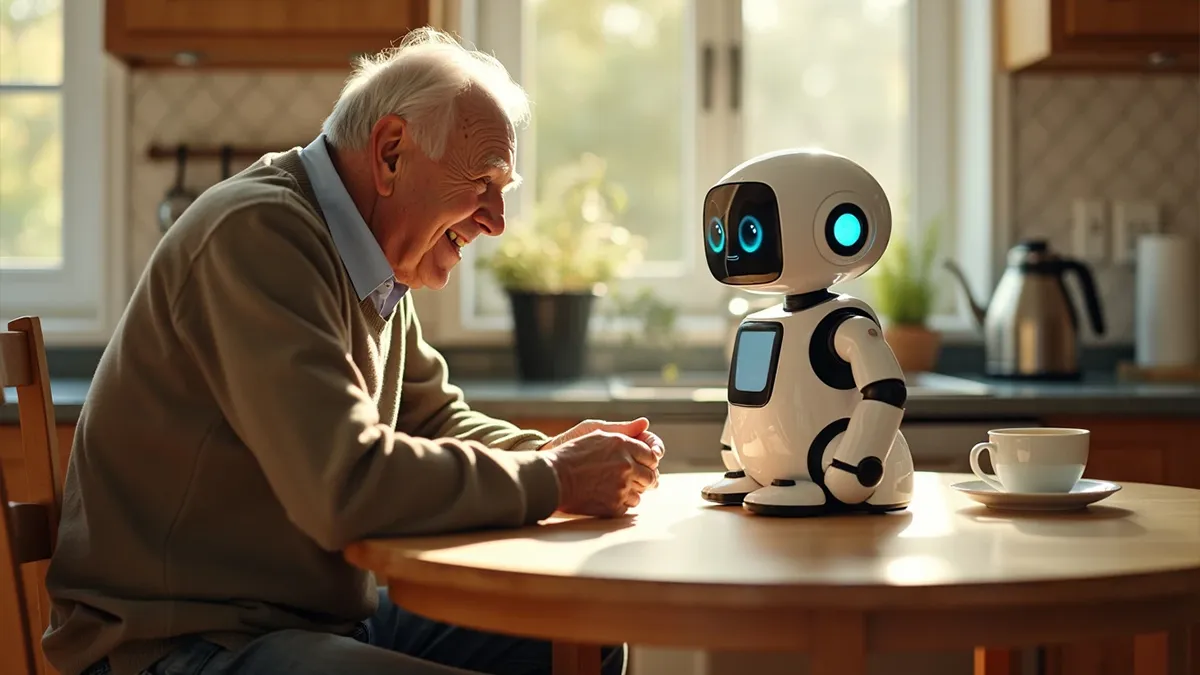
Have you ever imagined having a helper who’s always there for you, ready to answer your questions and make your day a little easier? That’s exactly how artificial intelligence can help—by being that constant support you need, simplifying everyday tasks and improving your quality of life.
Well, that’s exactly how artificial intelligence can help. It’s beginning to transform daily life, and its potential to assist older adults is truly incredible.
Many seniors struggle to use technology. After all, for those who have spent much of their lives without computers, smartphones, and social media, it can be challenging to keep up with the changes that seem to arrive faster every day.
However, AI has the potential to make this experience smoother, more practical, and even fun.
Table of Contents
The Advantages of AI for Seniors
Let’s take a look at some of the advantages that AI can offer to those in their golden years:
1. Virtual Assistants: A Helping Hand
Virtual assistants like Alexa, Siri, and Google Assistant are like personal helpers that never take a day off. They can do things such as:
- Remind you to take medication: Just ask, and the assistant will remind you at the right time.
- Answer simple questions: Is it cold today? What time is your favorite TV show? Instead of searching the internet, just ask.
- Call for help: In an emergency, all you need is a voice command, and the assistant can call a relative or even emergency services.
These tools are simple to use — they don’t require tapping on complicated screens, which is great for those who aren’t as comfortable with technology.
2. Companionship Against Loneliness
Loneliness is a problem that affects many seniors, especially those who live alone. What if a robot could talk, listen to your stories, and even tell jokes?
Research is already being done on companion robots, like ElliQ, which can offer companionship, encourage exercise, and remind users of their daily activities. It’s not about replacing human contact but about providing an extra layer of support, especially on days when no one can visit.
“Having someone — or something — always there, ready to listen, can make a big difference for those who face loneliness.”
3. Health and Safety: AI Taking Care of You
There are AI-powered health devices that help monitor vital signs and send automatic alerts to family or doctors if something seems wrong. Imagine a smartwatch that detects if you’ve fallen and immediately calls for help.
These advances bring more safety and peace of mind, both for seniors and their families.
In the future, we can imagine intelligent sensors throughout the house that not only monitor falls but also detect changes in behavior or health patterns — such as when someone is less active than usual — and notify the family.
It would be like having a pair of eyes looking after you discreetly, without invading your privacy.
Potential Risks: The Fine Line Between Technology and Humanity
Of course, every innovation comes with its risks. Let’s discuss some of them:
1. The Risk of Dehumanization
Although the idea of a companion robot is intriguing, we need to think about an important question: what about human contact? Are we replacing real connections with artificial solutions?
It may be convenient to have a robot that listens, but this should not become an excuse for family members to visit their elderly loved ones less or for fewer caregivers to be available.
Human contact is essential, and AI should be used as a complement, not a replacement.
“AI can help, but it can never replace the warmth of a friendly hand or the care of a heartfelt conversation.”
2. Privacy and Data Security
Another critical point is privacy. Many of these AI devices collect information — about health, habits, location. How can we ensure that this data is secure and not used improperly?
Seniors often may not understand the terms and permissions they are granting, leaving them vulnerable to misuse of their personal information.
Existing Solutions Already Helping
Despite the risks, many AI solutions are already helping seniors take advantage of this new technological wave. Let’s explore a few:
- Simple Tablets and Phones with Virtual Assistants: Devices with larger buttons and more intuitive interfaces, such as GrandPad, make it easier for seniors to access video calls and messages, keeping them connected with family.
- Health Devices Like the Apple Watch: In addition to monitoring health, the Apple Watch can detect falls and send alerts, offering extra safety for those living alone.
- Social and Companion Robots: Besides ElliQ, robots like Paro, a seal-shaped robot that responds to touch, help reduce stress and loneliness in elderly homes.
- Memory and Cognitive Training Apps: Apps like Lumosity help keep the mind active with games and challenges that improve memory and reasoning.
The Future of AI for Seniors
The future looks promising when we think about AI helping seniors. We can imagine:
- Full Smart Home Integration: Sensors, assistants, and even robots helping with daily chores, such as cooking or cleaning, to allow seniors to live more autonomously and comfortably.
- More Human Connections: Imagine a robot that not only responds but learns its user’s preferences and mood, adapting conversations to be more engaging and comforting.
- AI Encouraging Real Social Connections: Assistants that automatically schedule gatherings with friends, remind of birthdays, and encourage real interactions could be a very desirable future.
Conclusion: AI as an Ally, Not a Substitute
AI has tremendous potential to help seniors live more comfortably, safely, and even happily. It can be that friendly hand in moments of loneliness, ensure safety at home, and make the use of technologies that once seemed too complicated more accessible.
But it’s important to remember that technology should be used to connect us, not to isolate us. Human contact, care, and attention are irreplaceable. AI should be our ally, not our only companion.
Now tell me, do you know someone who could benefit from having a virtual assistant or an AI device? How do you see the balance between technology and humanity for older adults?
10 Essential Tips – Habits for Better Sleep Health + Apps to help

We’ve all had those sleepless nights—tossing and turning, staring at the clock, wondering when sleep will finally come.
But here’s the good news: improving your sleep doesn’t require huge lifestyle changes. Simple habits for better sleep, like adjusting your routine and making small tweaks, can make all the difference in getting the restful night you need.
It’s about focusing on easy, manageable habits that promote a healthier sleep pattern without feeling overwhelming.
Small tweaks to your daily routine can make a world of difference. That’s where developing habits for better sleep comes in handy.
Good sleep hygiene is all about creating the right environment and routines that set you up for a restful night. It’s not just about hitting the bed on time; it’s also about what you do before bedtime and how you prepare your body and mind to unwind.
Let’s explore 10 simple habits for better sleep that you can start today to feel more energized, boost your mood, and enjoy healthier nights ahead.
Table of Contents
The Importance of Sleep Hygiene
Good sleep hygiene is crucial for your overall well-being. It’s about more than just the hours spent in bed; it’s about the quality of those hours.
By adopting effective habits for better sleep, you can improve everything from your concentration to your overall mood and even strengthen your immune system.
On the other hand, poor sleep hygiene can lead to much more than a groggy morning. It can trigger irritability, a weakened immune system, and, over time, increase your risk of more serious health issues like heart disease or depression.
“Sleep is the best meditation.” — Dalai Lama
10 Simple Habits for Better Sleep Hygiene
Let’s dive into these simple habits that can transform your sleep.

1. Maintain a Consistent Sleep Schedule
Your body’s internal clock thrives on routine. Going to bed and waking up at the same time—even on weekends—helps regulate your circadian rhythm. Try to stick to a consistent schedule to train your body when it’s time to rest.
2. Create a Calming Bedtime Routine
Develop a routine that signals to your brain that it’s time to unwind. Whether it’s reading, stretching, or sipping herbal tea, these quiet activities help ease you into a restful state. Apps like Calm or Headspace can guide you through relaxing meditations that promote sleep.
“Sleep routines set the stage for your brain to know it’s time to power down.” — Sleep Specialist, Dr. Sarah Brewer
3. Limit Screen Time Before Bed
Blue light from your devices interferes with your ability to fall asleep. Aim to avoid screens at least 30 minutes before bed. Instead, try reading a book or listening to a podcast.
4. Cut Back on Caffeine in the Afternoon
A late-afternoon coffee might sound tempting, but caffeine can stay in your system for hours. Opt for decaf or herbal teas in the later part of your day.
5. Make Your Bedroom a Sleep Sanctuary
Your bedroom should be your haven for rest. Keep it cool, dark, and quiet. Blackout curtains or a white noise machine can help eliminate distractions, creating a sleep-friendly environment.

6. Incorporate Relaxation Techniques
Try relaxation techniques such as deep breathing or progressive muscle relaxation to calm your mind and body. Apps like Calm and Breethe can guide you through these techniques before sleep.
7. Exercise Regularly (But Not Too Late)
Exercise boosts your ability to fall asleep faster and promotes deeper sleep. But be mindful of exercising too close to bedtime, as it can be energizing. Aim to finish your workout at least a few hours before bed.
8. Limit Naps During the Day
While naps can be refreshing, too much daytime sleep can affect your ability to fall asleep at night. If you need a nap, keep it short—20 to 30 minutes is ideal.
9. Manage Stress Effectively
Stress and anxiety often keep us up at night. Try stress-reducing techniques like journaling, mindfulness, or talking to a trusted friend to help calm your mind before bed. Apps like Reflectly offer guided journaling to manage daily stress.
“A good laugh and a long sleep are the best cures in the doctor’s book.” — Irish Proverb
10. Avoid Heavy Meals Before Bed
Eating a heavy meal before bedtime can make falling asleep uncomfortable. Aim to eat dinner a few hours before bed and stick to light snacks if you feel hungry later.

How Small Changes Lead to Better Sleep
You might be surprised how quickly these small adjustments can lead to better sleep. By consistently practicing these habits for better sleep, you’ll notice that your body starts to align with your new routine.
For example, sticking to a set bedtime helps regulate your body’s internal clock. As a result, you’ll naturally start feeling sleepy at the right time, making it easier to fall asleep and wake up feeling refreshed.
“It’s the little things that matter. A consistent routine leads to a happier, healthier you.” — Sleep Expert, Dr. Michael Breus
Recommended Tools for Improving Sleep Hygiene
There are many tools available to support your habits for better sleep. Here are a few that can make your journey to better rest easier:
1. White Noise Machines
If you’re sensitive to noise, a white noise machine can create a soothing background sound to drown out distractions. This helps create a peaceful atmosphere for falling asleep.
2. Sleep Tracking Apps
Apps like Sleep Cycle and Pillow can monitor your sleep patterns and offer insights on how to improve your rest. They track how long you sleep, how often you wake up, and provide suggestions for better sleep hygiene.
3. Relaxation Aids
If stress keeps you up, try using relaxation aids like essential oils or a weighted blanket. Tools like these help calm your mind and body, making it easier to drift off.
Conclusion
Improving your sleep doesn’t have to feel like an uphill battle. By adopting these 10 simple habits for better sleep, you’re creating the ideal conditions for a restful night’s sleep, one small change at a time.
Start small—whether it’s limiting screen time before bed or creating a calming bedtime routine—and watch how these habits gradually improve the quality of your sleep. Remember, better sleep isn’t just a dream; it’s within your reach with the right habits and tools.
“Good sleep is the foundation of good health and a happier life.” — National Sleep Foundation
Now, it’s your turn! What changes will you make to improve your sleep? Drop your thoughts in the comments below!
Dreams About the End of the World in 2024 – Apocalyptic dream meaning

Unraveling the Apocalyptic Dream Meaning: Understanding Nightmares of the End of the World
Wow! Have you ever had a dream where the world was ending? Pretty wild, huh? These apocalyptic dreams might seem like something straight out of a movie, but they’re more common than you might think.
People often wake up from these dreams feeling shaken, maybe even a bit scared.
But guess what? Understanding the apocalyptic dream meaning can actually help us deal with the worries that might be hiding in our minds.

Table of Contents
Common Themes in Apocalyptic Dreams
When you dream about the world ending, there’s usually some pretty intense stuff going on. You might see chaos, destruction, or even things changing in ways that seem impossible.
These dreams are packed with symbols that might reflect some of the fears you’re holding onto, even if you don’t realize it.
Natural Disasters
Imagine your dream is like a natural disaster—maybe an earthquake or a hurricane. Whoa! That’s intense, right? These disasters often symbolize forces that are out of your control, showing how fragile life can feel.
When you have this kind of dream, it might mean you’re feeling vulnerable or worried about something in your life that’s totally out of your hands.
War and Conflict
Ever dream about being in a war? That’s another common theme in apocalyptic dreams. You might see battles, explosions, or even a full-on global conflict.
These dreams often highlight fears about society falling apart or losing control.
It’s like your mind is trying to make sense of the chaos around you or the conflicts you’re facing in your own life.
Alien Invasions or Supernatural Events
And then there are those dreams where you’re up against aliens or facing some kind of supernatural event—zombies, anyone?
These elements are all about the unknown and the fear of things you just can’t control.
It’s like your brain is saying, “Hey, this is scary because it’s so out there!”
Protein Fasting: My 7-days Journey to Cellular Renewal and Metabolic Reset
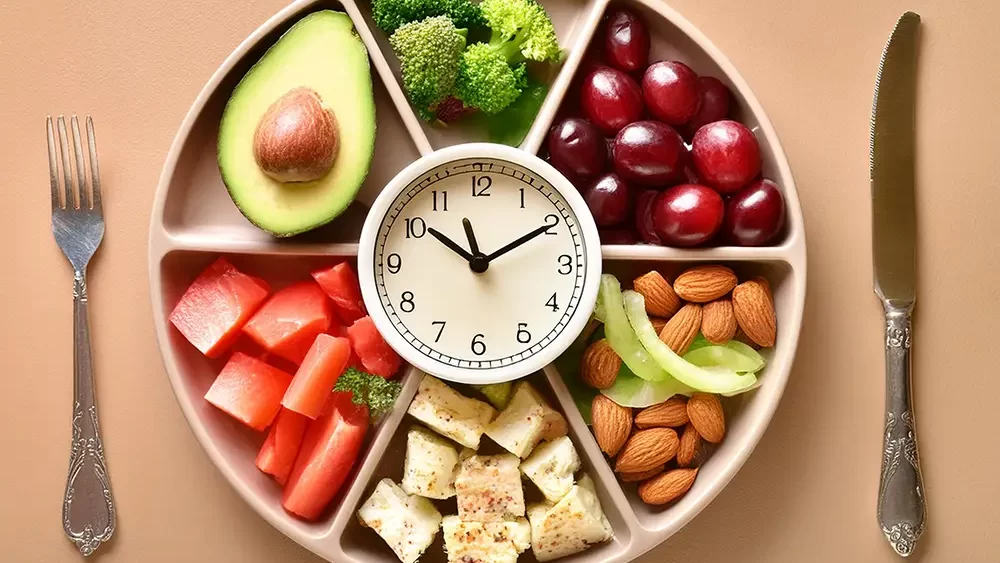
As a 40-year-old father of two juggling a demanding career and a bustling family life, I’m always on the lookout for ways to enhance my health and longevity.
Not long ago, I discovered the intriguing concept of protein fasting and its promising benefits for cellular renewal and autophagy. Captivated by both the scientific research and compelling personal stories, I decided to dive in and undertake a 7-days protein fast myself.
In this article, I’ll share my journey, the hurdles I encountered, and the fascinating science behind this growing health trend. Join me as I explore the potential of protein fasting to boost well-being and vitality.
Table of Contents
What is Protein Fasting?
Protein fasting, also known as protein cycling or intermittent protein fasting, is a dietary approach that involves periodically reducing protein intake to very low levels.
Unlike complete fasting, which restricts all calorie intake, protein fasting allows for the consumption of carbohydrates and fats while minimizing protein[1].
The primary goal of protein fasting is to trigger a cellular process called autophagy. Autophagy, derived from the Greek words “auto” (self) and “phagy” (eating), is the body’s way of cleaning out damaged cells and regenerating new onesIntermittent fasting: A dietary intervention for prevention of diabetes and cardiovascular disease?
This process is crucial for cellular health and has been linked to numerous benefits, including improved longevity, reduced inflammation, and enhanced cognitive function.
The Science Behind Protein Fasting and Autophagy
Before diving into my personal experience, it’s essential to understand the scientific basis for protein fasting and its relationship to autophagy.
Autophagy is regulated by several factors, including nutrient availability and cellular stress. When the body experiences a lack of certain nutrients, particularly amino acids from proteins, it triggers autophagy as a survival mechanism[3].
This process helps recycle cellular components and remove damaged organelles, promoting overall cellular health.
Research has shown that reducing protein intake, even for short periods, can stimulate autophagy. A study published in the journal Cell Stem Cell found that cycles of fasting or fasting-mimicking diets, which include protein restriction, promoted multi-system regeneration and extended health span in mice[4].
Moreover, a review article in the journal Ageing Research Reviews highlighted the potential of protein restriction and fasting-mimicking diets in promoting longevity and reducing the risk of age-related diseases[5].
-

 Personal Growth & Mindset3 months ago
Personal Growth & Mindset3 months agoTed Lasso Effect: 5 Goal-Setting Secrets You Must Know
-

 AI & Future Trends9 months ago
AI & Future Trends9 months agoAI in Time Management 2024: A New Era of Productivity for Business Leaders
-

 Personal Growth & Mindset5 months ago
Personal Growth & Mindset5 months agoMachado de Assis: This Viral TikTok Explains Why You Need to Read ‘The Posthumous Memoirs of Brás Cubas’ Now
-

 Health & Wellness5 months ago
Health & Wellness5 months agoStop Ignoring This: How Doctor Recommendations Are Transforming Wellness in 2024
-

 Health & Wellness4 months ago
Health & Wellness4 months agoGreen Noise: Your Secret Weapon for Mindfulness and Relaxation 2024
-
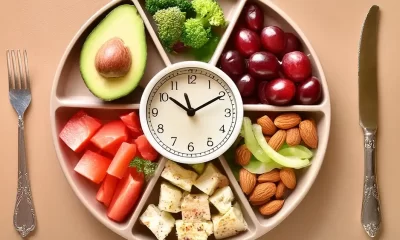
 Health & Wellness3 months ago
Health & Wellness3 months agoProtein Fasting: My 7-days Journey to Cellular Renewal and Metabolic Reset

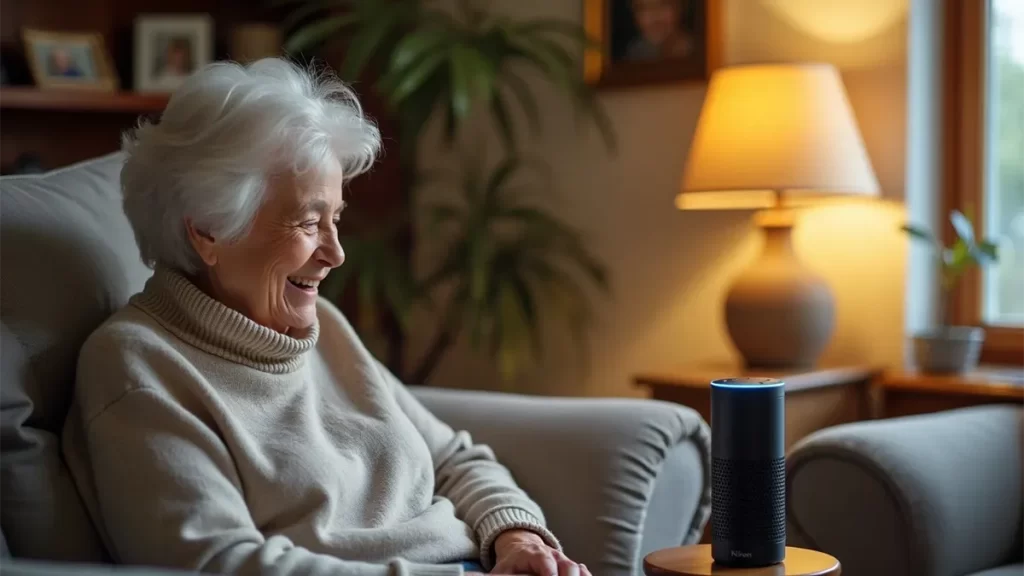
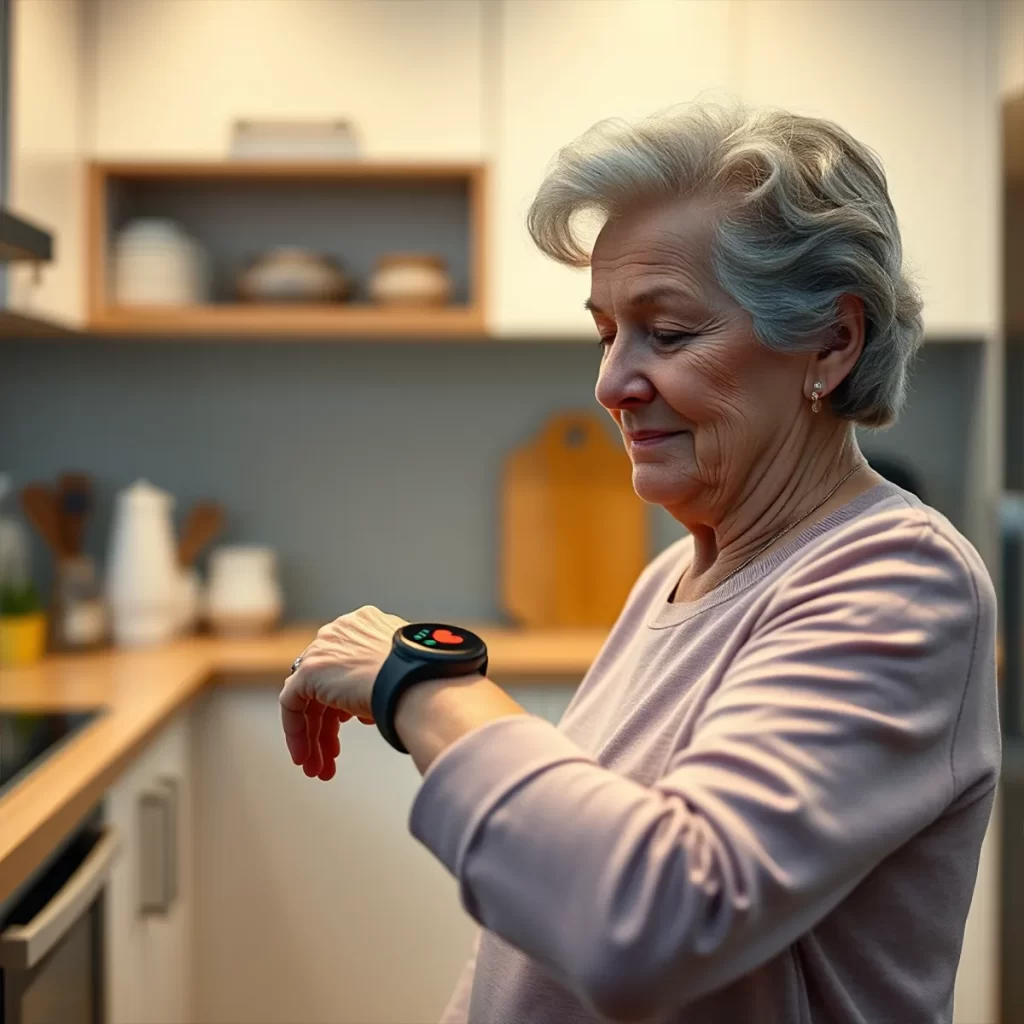
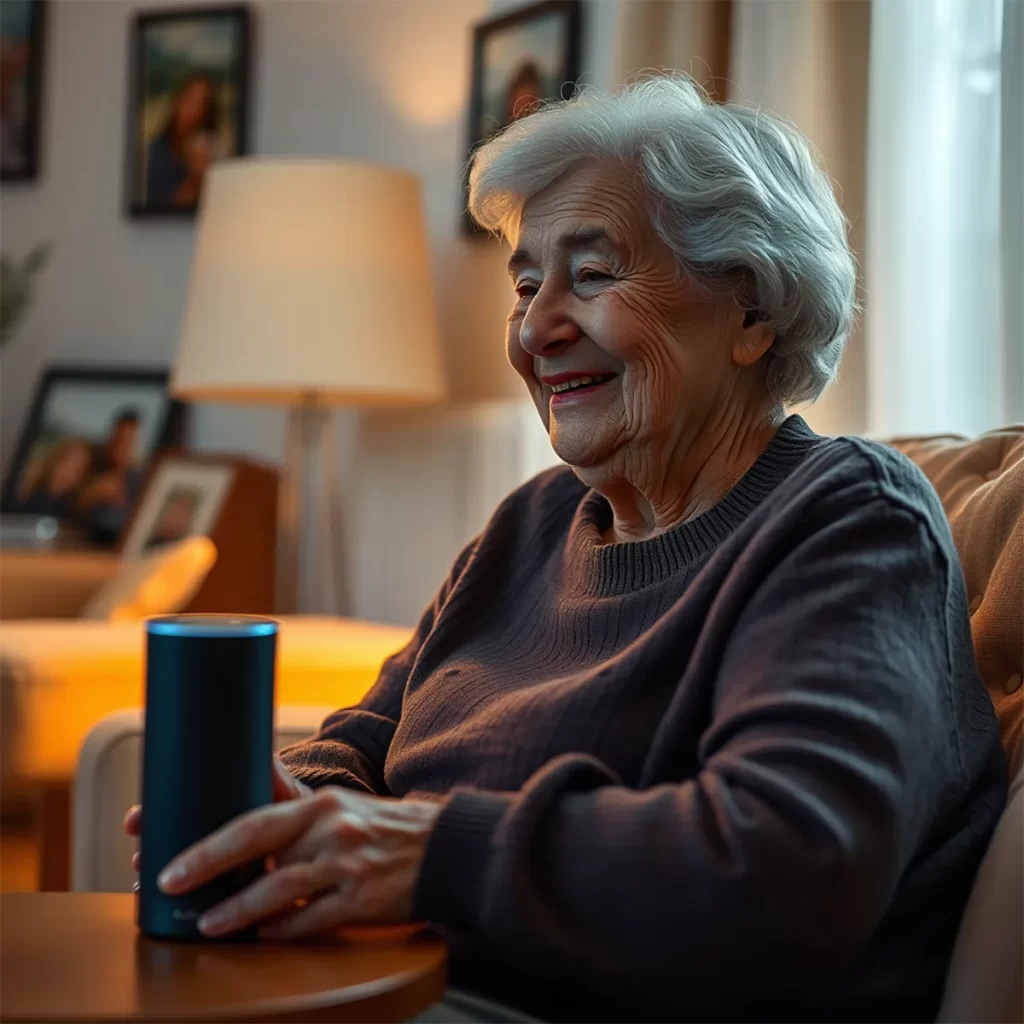
















Pingback: Protein Fasting: My 7-days Journey to Cellular Renewal and Metabolic Reset - Growth Journey Hub
Pingback: The Incredible, Edible Egg: A Journey Through Time, Taste, and Nutrition - Growth Journey Hub
Pingback: This Is Why I'll NEVER Go Back to Regular Workouts: The Thermal Stress Health Benefits You Need to Know - Growth Journey Hub